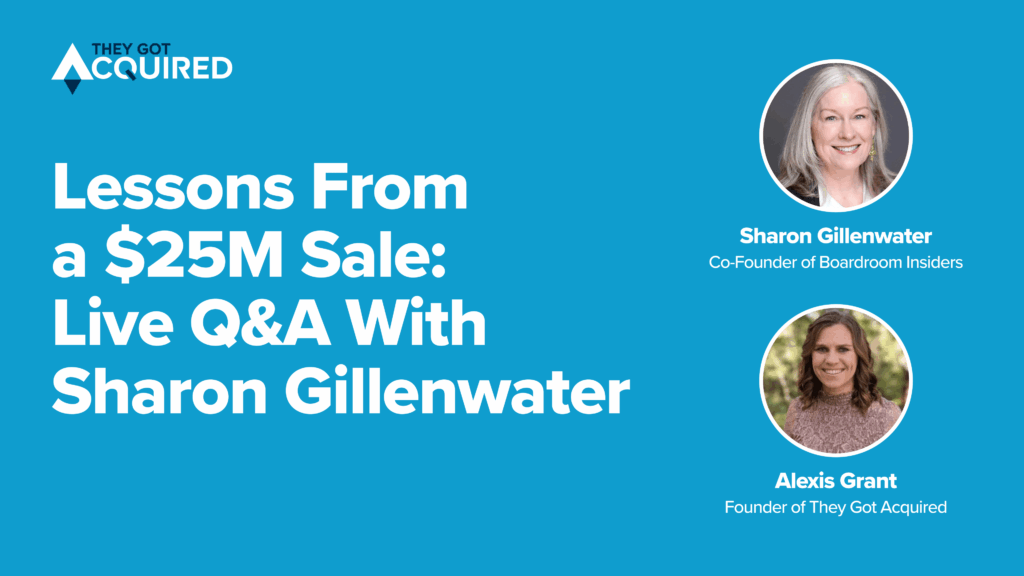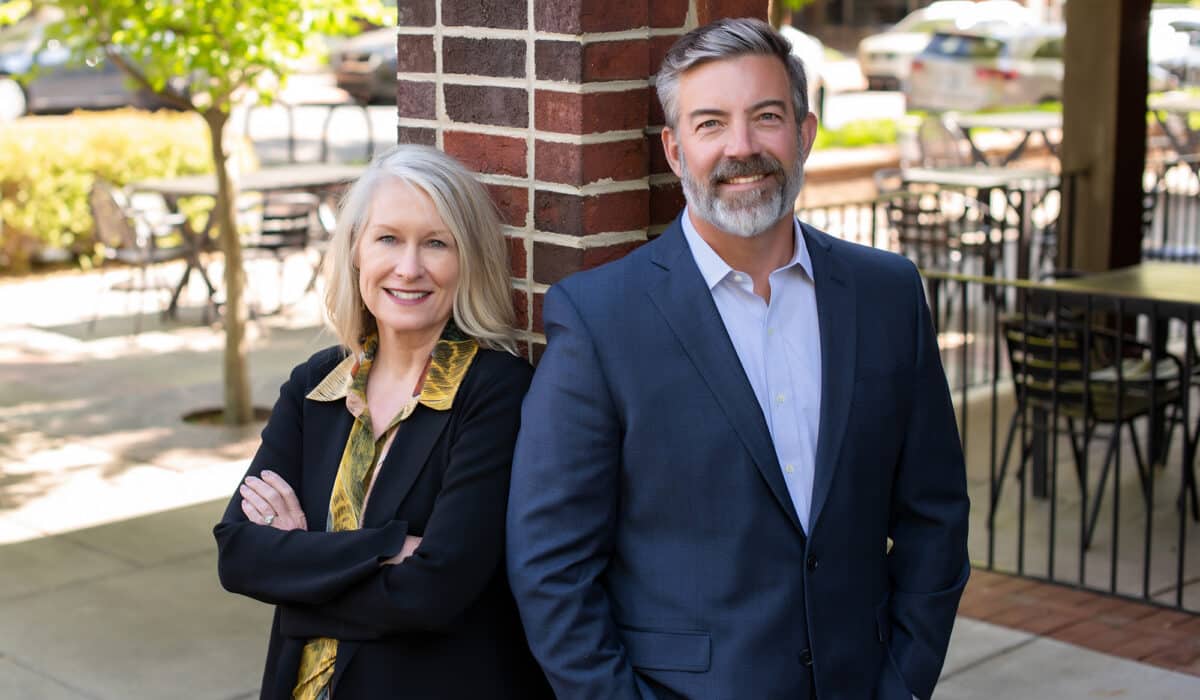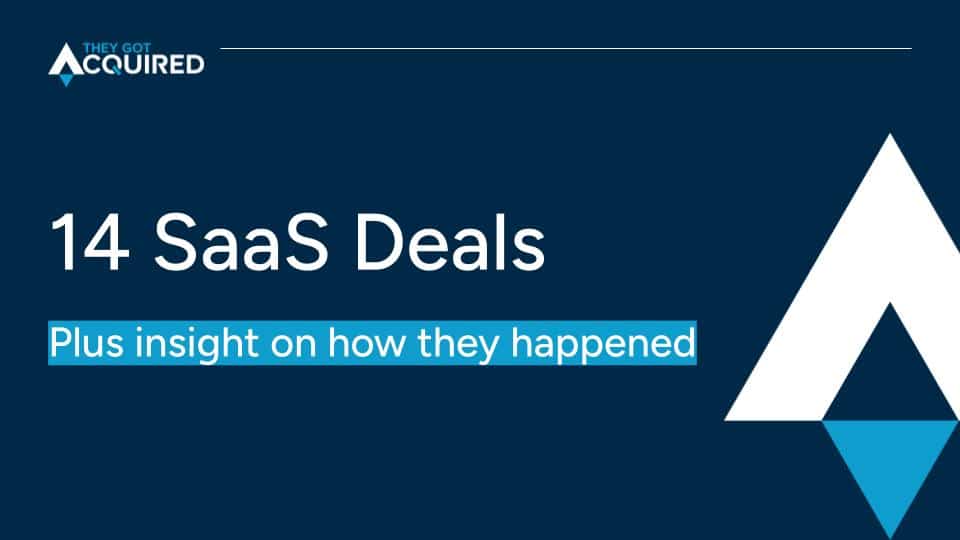Before we get into this story, we hosted a live Q&A with this founder! You can watch it here:

Co-founders Sharon Gillenwater and Lee Demby sold Boardroom Insiders, a database for marketers and sellers targeting the C-suite, for $25 million in January 2022.
But as every founder knows, the amount they walked away with looked very different.
Gillenwater’s been incredibly transparent about her sale experience, breaking down the figures and fees on her blog — and we’re going to share all of that here.
But first, let’s dig into Boardroom Insiders — how the founders got started, how they funded the business and how they found a buyer.
The idea behind Boardroom Insiders
Gillenwater, who lives in San Francisco, started working on Boardroom Insiders in 2008 after consulting for tech companies.
“I started really listening to my consulting clients, which were some of the biggest tech companies in the world,” she posted on TikTok. “I started noticing that they all have the same challenge… Salespeople didn’t know how to talk to senior executive customers. They didn’t know how to sell into the C-suite or what to say to those people or what the story should be.”
She knew she’d never be able to sell a consulting company for top-dollar because buyers don’t want revenue attached to billable hours — they’ll pay far more for subscription-based businesses with recurring revenue that can more easily scale.
So she created Boardroom Insiders, a database of vetted executive profiles designed to help C-suite sellers and marketers access key decision makers and build stronger relationships — and ultimately close bigger deals faster. C-level recruiters could also use the dashboard to find the best C-level job candidates.
Each executive profile was one to five pages and included insights into an executive’s background, business priorities, business challenges, social media profiles and even hobbies. Think of the database like a curated, searchable, up-to-date Rolodex that contains pages of notes for each contact.
Later on, Boardroom Insiders also offered a more premium product, BI Pro, which was designed for more strategic and account-based marketers. It included additional features like relationship mapping, audience analysis, alerts and more.
By 2022, the database had grown to more than 29,000 profiles.
Boardroom Insiders operated on an annual license model, and Gillenwater told us most deals fell within the $50,000 to $300,000 range depending on several factors, including the size of the company and number of users.
In the early days, Gillenwater knew Boardroom Insiders could succeed. (Several of her consulting clients, including Cisco, were piloting the program). But she admitted she had a hard time fully committing to the business, so she brought on another partner in 2010, her co-founder and president Lee Demby.
“It kept us accountable to ourselves and accountable to each other,” she said. “That was one of the best decisions I made.”
Growing and funding Boardroom Insiders without venture capital
Gillenwater said the biggest challenge growing the company was gaining access to capital. Initially, she felt like she needed to raise venture capital to be seen as a legitimate startup, she said. But her first meeting didn’t go as planned.
As she recounts, the investor interrupted and told her to stop talking about how great her idea was — “no one cares.” She walked out of the meeting with a new takeaway: The average VC funder doesn’t care about the customer or their experiences — they just want to invest in massively scalable companies that pay off quickly.
Gillenwater decided to fund her initial product with her consulting revenue (five figures a month), she shared. She also stopped saving for retirement so she could put that money into the business.
As she moved beyond the minimum viable product, a friend who had just exited his own company invested $125,000. A few years later, a few more family and friends invested a total of around $75,000. They ended up giving away about 15 percent of the company.
Beyond that, Boardroom Insiders relied on revenue for growth. That meant, for a long time, Gillenwater and Demby didn’t take salaries. When they finally started paying themselves, they each took around $2,000 to $4,000 a month. Over time, they scaled and finally reached market-rate salaries about two or three years before they sold.
By the end of 2021, Boardroom Insiders had grown to become a team of 28 full-time employees. They also relied on two vendors: one out of India with 25 researchers and one out of Russia with two developers.
At sale, annual recurring revenue was around $5 million, Gillenwater shared.
Selling Boardroom Insiders: steps to finding a buyer
In the spring of 2021, co-founders Gillenwater and Demby began looking to sell “because of the timing and multiples for SaaS at the time,” Gillenwater said.
The co-founders noticed similar companies were selling for high multiples, and they didn’t want to miss a good opportunity. They also worried about the economy crashing, which they suspected would impact their tech customers, Gillenwater recounts.
First, they hired a law firm, Morris, Manning & Martin, after it was referred to Demby. The law firm recommended five M&A bankers.
Gillenwater and Demby began interviewing each. Two declined to pitch them because it wasn’t a good fit or they were too busy. For the remaining three bankers, Gillenwater asked for four references each. She spent a week speaking with 12 entrepreneurs about their experience with each firm. She also took the opportunity to ask them about the M&A process.
Leonis Capital Partners passed the test, and they kicked off the sales process in September 2021 by uploading company documents to a database. The banker followed up with discovery calls, asking questions about anything that wasn’t clear in the provided documents.
Leonis Capital Partners then put together a marketing deck and a list of about 150 companies that were potential buyers. About half of those companies were PE firms and the other half were “strategics.”. At that point, outreach began. If a party showed interest, they’d meet with Gillenwater and Demby.
Their first offer was from Euromoney, a B2B information-services business (now rebranded to Delinian). It was all cash, but for a lot less than what they’d hoped. They countered, asking for a 33% increase, and Euromoney came back with a 25% higher offer.
The $25 million deal worked out to a multiple of 5x ARR, which was $5 million.
Gillenwater and Demby accepted the offer, and due diligence began. Gillenwater says she often hears founders gripe about the due diligence process, but for them, it wasn’t too bad. Their documents had already been reviewed and were easily accessible. They also had experts who knew how to answer tough questions, like a fractional CFO, an accounting firm and a tech firm.
Overall, Gillenwater described the acquisition as “stressful but exhilarating and very fun.” The most challenging part was keeping Boardroom Insiders running smoothly while juggling the sale.
The deal was supposed to close in December 2021, but they hit a few road bumps. For example, the buyer paused the process for two weeks.
“We didn’t even know that at the time because our bank shielded us from that drama, and that’s what a good banker will do,” Gillenwater recalls. “It’s stressful enough. You don’t need more stress.”
Gillenwater and Demby also found out the buyer didn’t want them to continue in their roles post-acquisition. “That was just really a surprise after having run the company for so long,” she says.
On January 20, 2022, the deal closed. Boardroom Insiders sold for $25 million in cash — but that, of course, isn’t the end of the story.
Where did the $25 million cash go after the sale?
Three weeks later, Gillenwater was out of a job. Since the sale, she’s been on a mission to make entrepreneurship more accessible to people from nontraditional backgrounds. That includes writing a book, launching several content series on TikTok and sharing details of the sale on her blog.
There, Gillenwater shared that she grossed just under $13 million as the majority shareholder from the $25 million sale of Boardroom Insiders. The other shareholders — including her co-founder and people who gave seed money or traded their labor for equity early on — got $9.5 million.
So, in total, shareholders grossed about $22.5 million. Here’s where most of the remainder of the cash went:
- First up: the professional fees. Leonis Capital Partners got just over $1 million the lawyers got $200,000 and the accountants got $51,000.
- Another $800,000 in phantom equity, a percentage of net proceeds from the deal, was distributed to 13 vested employees.
From her $13 million gross, Gillenwater paid $3.8 million in federal and California state taxes, equating to about 30%. This may sound like a lot — and it is — but it’s actually a great rate, and Gillenwater outlines how she did it on LinkedIn.
“So after all the transaction fees and state and federal taxes, I personally walked away with around $9 million on the $25 million sale of a company I founded back in 2008 and then ran for 14 years,” she wrote.
She was thrilled with the deal. She remembers being on a flight when she got the news — she couldn’t jump up and down like she wanted to. Her husband sent her a screenshot of their bank account balance.
“The truth is, we’d been living on the financial edge for years,” she said. “Finally being financially whole was a huge relief.”



